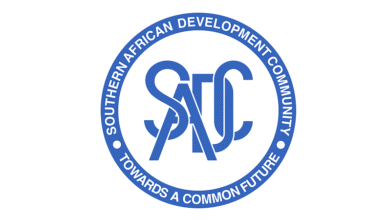Outrage in Zimbabwe as ICT Minister Mandates Costly Licenses for WhatsApp Group Admins

Zimbabwe’s ICT Minister, Tatenda Mavetera, recently announced a controversial new policy requiring WhatsApp group administrators to register and obtain a license from the Postal and Telecommunications Regulatory Authority of Zimbabwe (POTRAZ). The cost of these licenses ranges from US$50 to US$2,500, sparking widespread criticism from analysts, business owners, and civic leaders.
In her statement, Mavetera emphasized the importance of compliance with the Data Protection Act, saying, “The time is ticking for organisations that collect first-party data, as you are required by law to have a data protection licence, and the licence fees range from $50 to $2,500.” She further noted that the policy extends beyond businesses to include churches and other entities that handle personal data, requiring them to appoint a Data Protection Officer (DPO) certified by POTRAZ.
“Even churches who collect personal data ought to have such a licence and appoint a data protection officer,” Mavetera said. “WhatsApp group admins are not spared either. If your groups are meant for business, you should also obtain a licence.”
The directive has provoked significant backlash. Investigative journalist Hopewell Chin’ono expressed outrage, describing the policy as “absurd” and accusing the government of further exploiting citizens. “Zimbabwe has been a banana republic for a while, but I never thought it would sink to this level of absurdity,” Chin’ono said. “Mnangagwa’s regime has stolen billions of dollars, with Mnangagwa himself being the central character in the looting, and now they are charging people for WhatsApp groups.”
Norton legislator Richard Tsvangirai criticized the policy as “misguided,” arguing that it unfairly targets ordinary citizens managing community groups. “Taxing WhatsApp group admins is a misguided policy that targets everyday citizens simply managing community chats,” Tsvangirai remarked. “Instead of helping digital growth, this policy will discourage communication, collaboration, and small business networking. Let’s promote connectivity, not penalize it.”
Business consultant Prechard Chad Mhako echoed these concerns, warning that overregulation could undermine the country’s digital economy. “Building a credible digital economy will be difficult if we overregulate,” Mhako said. “Licenses for WhatsApp groups will damage perception, deter tech investment, and stifle digital innovation.” He pointed out that such measures could hinder Zimbabwe’s progress toward its 2030 vision of economic growth and technological advancement.
The government, however, argues that licensing is necessary under the Data Protection Act, which defines personal information as data that can directly or indirectly identify an individual. Since WhatsApp group administrators have access to members’ phone numbers, authorities claim that regulation is justified.
Despite the government’s rationale, many Zimbabweans fear the policy will criminalize common online activities and add financial burdens on small businesses already struggling in a challenging economic climate. Critics argue that the move is a step backward for digital connectivity and innovation, stifling the very growth it purports to protect.
With Zimbabwe relying increasingly on digital communication platforms for business and community engagement, the future of the country’s tech landscape hangs in the balance as the debate continues over whether the licensing requirement will protect or inhibit its digital ecosystem.




